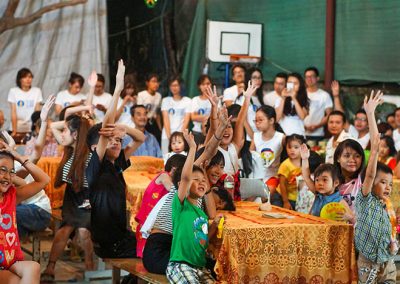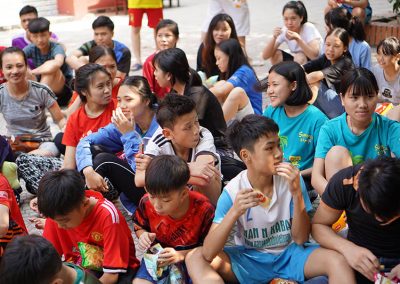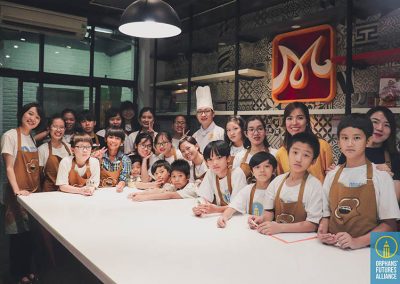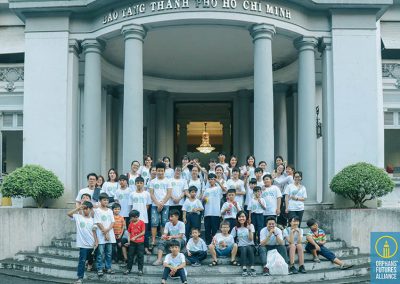Vietnam
Why are we in Vietnam?
Since the 1980’s, Vietnam has been transforming its economy, political structure, and education system. According to the World Education News and Reviews, Vietnam’s GDP grew by 3303% between 1990 and 2016, making Vietnam the second-fastest growing country behind its northern neighbor China. Its labor force, previously dominated by agricultural laborers, has continued to shift to industry and service workers to the volume of 1 million people a year. In parallel, students in Vietnam have also benefited from the country’s transformation. As an initiative to boost the economy, the Vietnamese government increased its spending on education-related expenses to roughly 5.7% of GDP in 2013 and 20% of the state budget. This surge in funding has resulted in a net increase in intake rates and a decrease in the number of students repeating grades or dropping out. Youth literacy rate has increased from 93% in 2002 to 97% in 2012. The number of students enrolled in higher education has nearly increased by 20x between 1987 and 2015 from 133,000 to 2.12 million.
Despite the commendable efforts implemented across the education spectrum, not all students are given a fair chance to reap the benefits of a full academic career. Before 2005, students were only required to complete schooling up to grade five. Since then, the minimum requirement has risen to grade nine, though there is no strict enforcement of this new guideline. Students can attend elementary school free of tuition, but are still required to pay out of pocket for textbooks, uniforms, and school supplies. Beyond elementary school, students have to pay tuition for secondary (grade six to twelve) and higher education. During the 2015-2016 school year, the tuition for higher education averaged between $262 and $385 per year while more elite universities charged up to $1,000 per year.
When Chau and Thai-Anh visited their first orphanage in Vietnam in 2011, the pair identified the orphans they met as an underserved demographic, hindered not only by their poverty but also by their lack of social, mental, and logistical means to obtain a proper education. The current system in Vietnam only left them with two options: (1) stay in the stifled orphanage ecosystem, or (2) leave to work without a sufficient education or social training to be a productive member of society. This lack of support may perpetuate a lifetime of poverty for many of these children. While orphans have benefited from the modern wave of international and domestic adoption and volunteer tourism, there lacked a long-term, holistic resource for them, one that would provide basic needs, mentorship, and social support. That is the missing puzzle piece that OrFA aims to fill through its scholarship and mentorship programs.
What Are We Doing In Vietnam?
OrFa runs two primary programs in Vietnam: the mentoring program and the scholarship program. The mentoring program pairs a young student that ranges from being in Kindergarten to College/Trade School with a mentor that is appropriate for their age/school level and needs. The partnership is anchored around the goals of professional and personal development. OrFA sponsors six community-based events during the year to promote collaboration, teamwork, and creativity. Mentees may also be enrolled in the scholarship program, which provides students with a modest scholarship averaging $600 USD to be spent on tuition, books, school supplies, tutoring sessions, etc.
Due to COVID-19, the orphans and mentors have not been able to meet until June. OrFA restarted our mentoring events while abiding by the safety regulations set by the government. The goal of OrFA’s mentoring program is to provide a fun and relaxing environment for the mentoring pairs to learn new skills, while creating positive memories together and deepening their personal bonds. At one of the six mentor/mentee activities organized by OrFA, the pairings participated in a painting workshop where they got the chance to create a unique piece of art together and add another milestone to their mentorship.
Our Events
2019 Activities
|
Life skill – Cooking Class |
February 17, 2019 |
|
Career Path |
March 17, 2019 |
|
Art activity – Painting workshop |
May 26, 2019 |
|
Wrap up |
July 7, 2019 |
|
1st event of class 2 |
July 7, 2019 |
|
Matching event |
September 8, 2019 |
|
Technology workshop |
September 15, 2019 |
|
Matching Event and Full-Moon Event |
September 15, 2019 |
|
Museum Tour |
November 3, 2019 |
|
Explore my city |
November 17, 2019 |
|
Art Activity |
November 17, 2019 |
|
DIY workshop |
December 22, 2019 |
2020 Activities
|
HCM: Activity 1 |
Mentor/Mentee Getting to know you |
September 2020 |
|
Hanoi: Activity 1 |
Mentor/Mentee Getting to know you |
September 2020 |
|
HCM Pre: Activity 2 |
Art activity and matching |
November 2020 |
|
Hanoi Pre: Activity 2 |
Art activity and matching |
November 2020 |
|
HCM Sec: Activity 2 |
Art activity and matching |
November, 2020 |
|
Hanoi Sec: Activity 2 |
Art activity and matching |
November 2020 |
|
HCM High: Activity 2 |
Art activity and matching |
November, 2020 |
|
Hanoi High: Activity 2 |
Art activity and matching |
November 2020 |
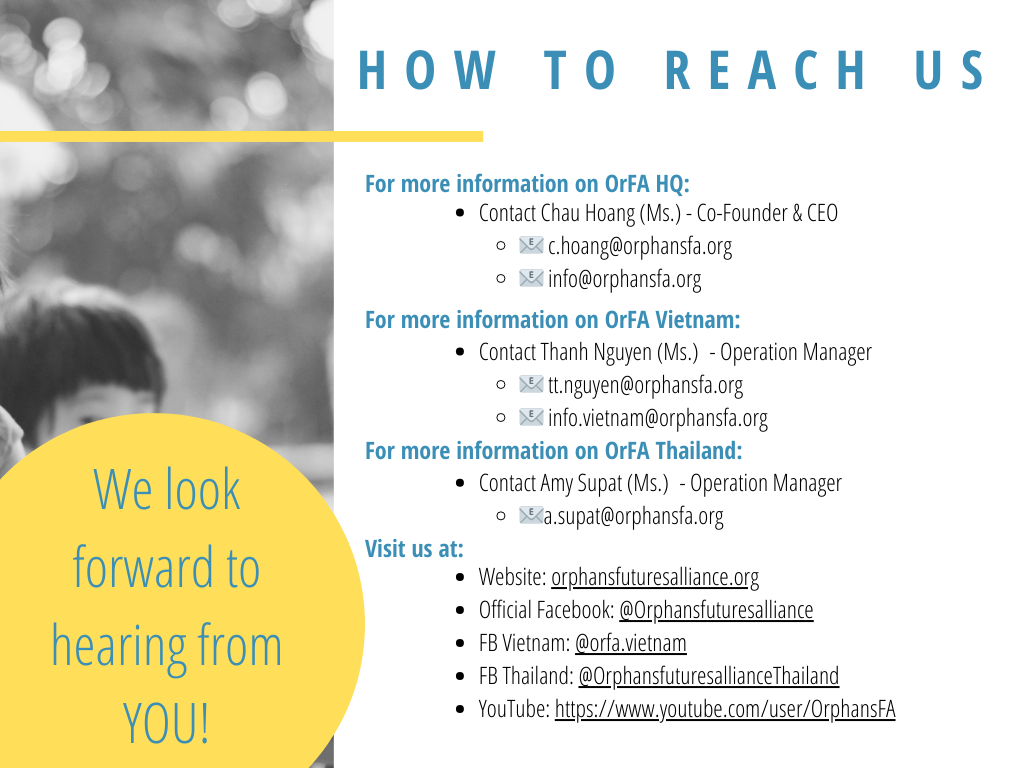
Get in Touch. Get Involved.
